-
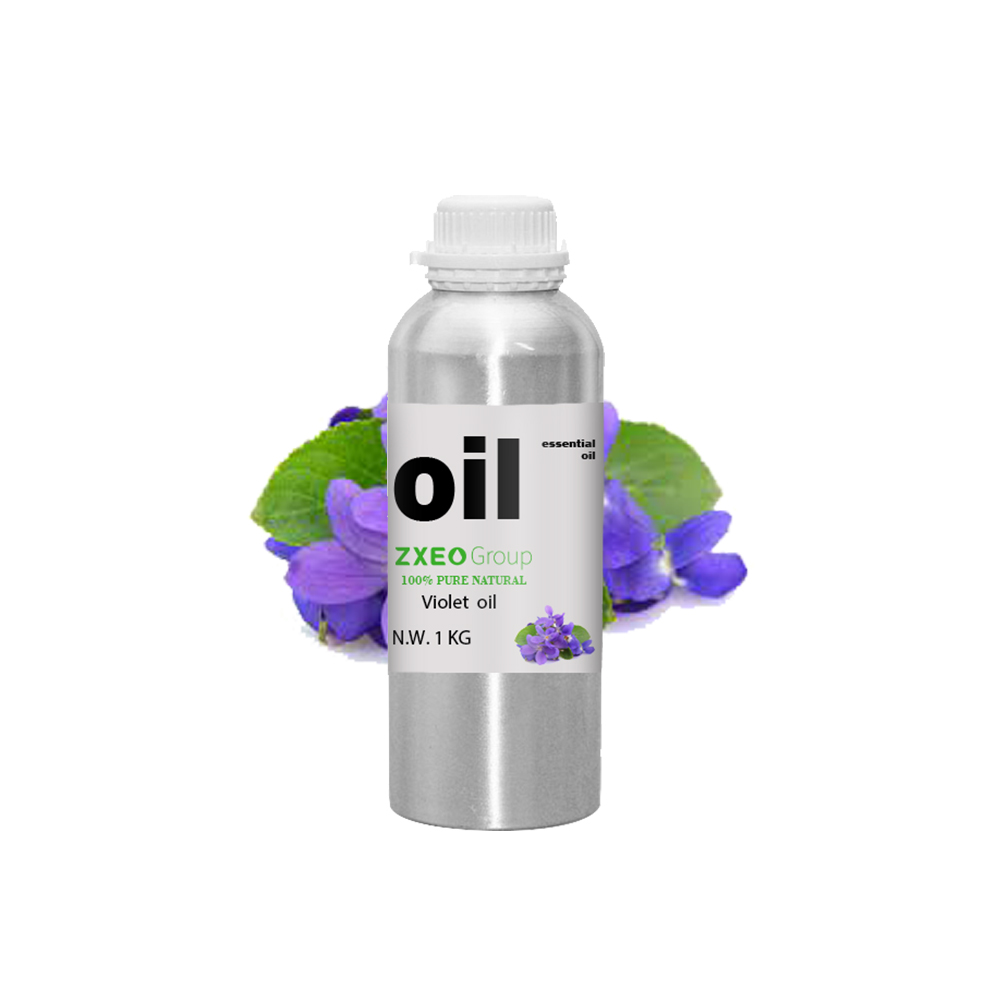
100% Pure Natural Aromatherapy violet Oil for Diffuser, Humidifier, Massage, Skin Care, Yoga, Sleep
Just like violet flowers, violet essential oil is also becoming more and more popular for its wide range of uses and benefits across the world! Order this tenacious, sweet smelling essential oil from Aromaaz International and experience the nature’s gift in its purest form.
Botany
Viola Odorata, also known as sweet violet in common language, is a small evergreen perennial herb that is a part of Violaceae family. The plant has dark green leaves and beautiful scented flowers of different hues. The plant requires moderate sunlight and moist, fertile soil to grow.
Overview of Violet Essential Oil
Violet essential oil is derived from the leaves and flowers of the Viola odorata plant through a process of steam distillation. The presence of therapeutic properties in this oil provides myriads of health benefits. The oil has a beautiful floral aroma which makes it good enough to be used in aromatherapy.
Benefits of Violet Essential Oil
• The calming fragrance of the violet essential oil soothes the brain nerves and induces sleep.
• The violet essential oil is an effective remedy to treat symptoms of common cold like chest congestion, blocked nose, and dry throat.
• The anti-inflammatory properties present in this oil cure the pain in the joints and muscles.
• The oil is extremely beneficial in treating acne and eczema.Blends well with
Violet essential oil goes well with Sandalwood, Clary Sage, Lavender, Benzoin, Basil,Geranium, Neroli, Tuberose, Jasmine.
Precautionary Measures!,
• Don’t take this essential oil orally as it can lead to nausea and vomiting.
• Always mix this oil in carrier oil or with water.
• This oil should not be consumed when pregnant. -
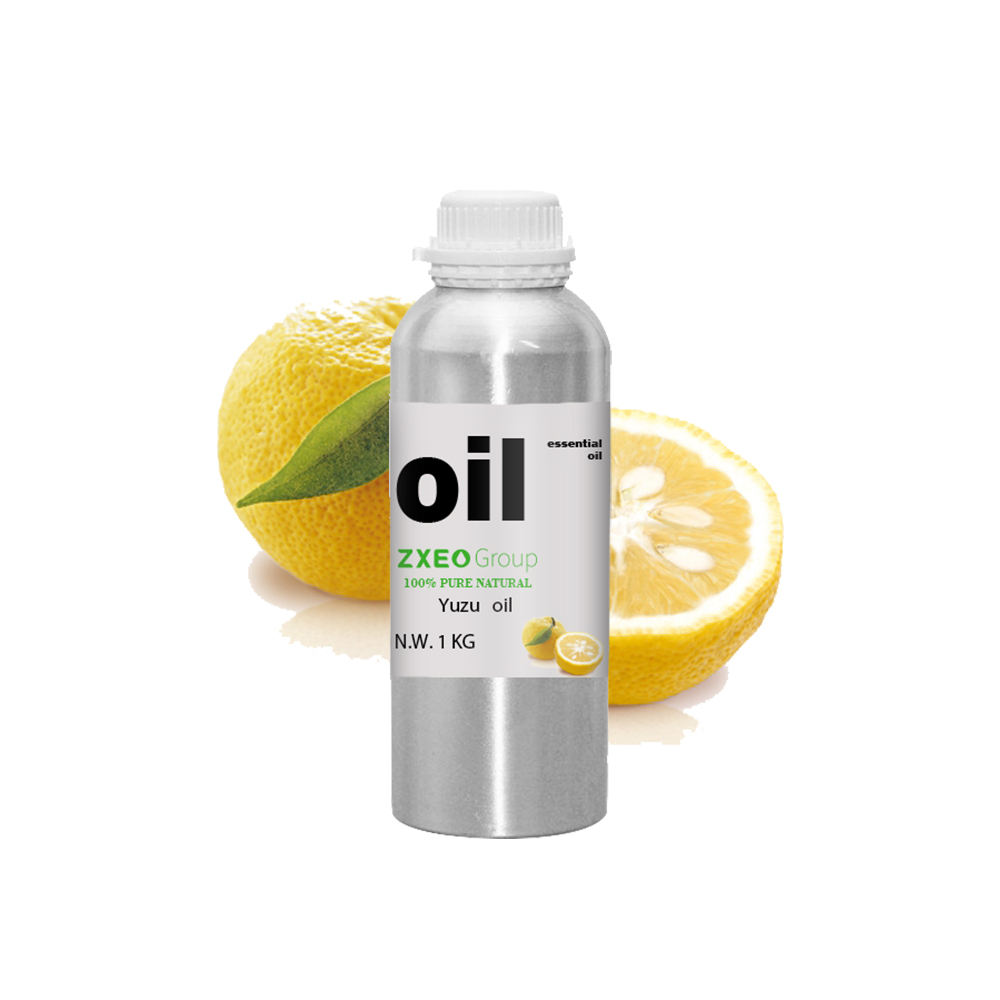
Pure naturalOrganic Yuzu Essential Oil Organic Citrus junos Peel Oil – Pure and Natural Essential Oils
Yuzu Essential Oil
Yuzu Essential Oil possesses a delightful citrus aroma that smells like a cross between Mandarin Essential Oil and Grapefruit Essential Oil. Children are very likely to enjoy the aroma.
Yuzu, Citrus junos, is a citrus fruit that is primarily grown in Asia. The fruit is yellow to green in color and is not typically eaten. Instead, its aromatic rind is traditionally used for culinary applications.
Yuzu Essential Oil is well known for application within personal fragrancing. However, limited reliable information exists on the use of Yuzu Oil for other specific applications.
The pleasant aroma of Yuzu Essential Oil makes it a good candidate for uplifting diffuser blends intended to help with anxiety, depression and nervousness.
Be selective of where you buy Yuzu Essential Oil from, and purchase it only from reputable companies. Some producers have been found to pass a citrus oil blend off as Yuzu Oil.
Yuzu Essential Oil is not likely to be phototoxic. See the Yuzu Essential Oil Safety Information section below for more information.
Yuzu Essential Oil Benefits and Uses
- Nervous Stomach Cramps
- Cellulite
- Neuralgia
- Influenza
- Colds
- Convalescence
- Stress-induced Skin Conditions
- Devitalized Skin
- Nervous Tension
- Nervous Exhaustion
- Chronic Fatigue
- General Tonic
-
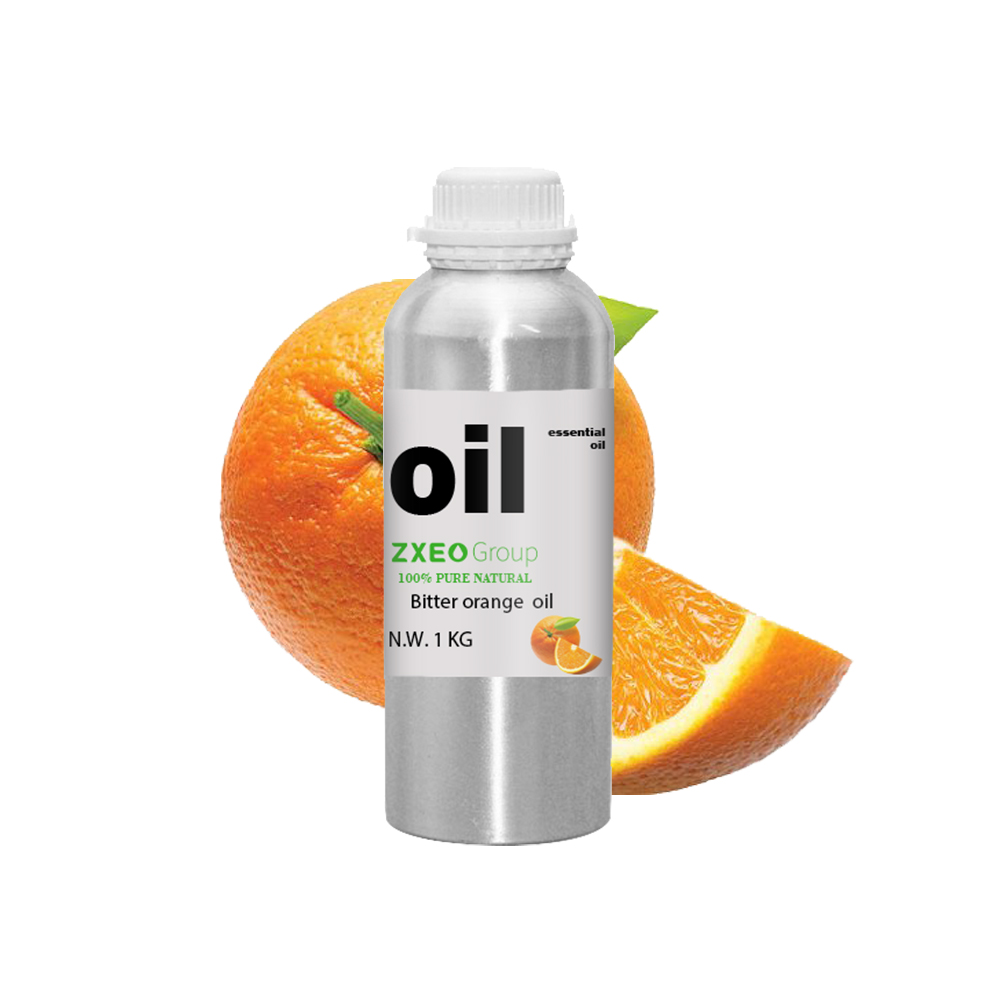
Import Online Private Label Bitter Orange Oil Body Massage Baby Oil Buy Online Essential Oils
Bitter Orange Essential Oil
As the name implies, Bitter Orange Essential Oil possesses a bitter orange aroma reminiscent of a cross between the sweetness of Sweet Orange Essential Oil and the slight bitterness of Grapefruit Essential Oil. Although it’s favored by some individuals, I have less experience in use of this particular oil. I personally tend to lean towards using sweet orange, grapefruit and the other citrus oils.
Bitter Orange Essential Oil is phototoxic. Refer to the safety information mentioned below.
Bitter Orange Essential Oil Benefits and Uses
- Colds
- Constipation
- Dull Skin
- Flatulence
- Flu
- Gums
- Mouth
- Slow Digestion
- Stress
-

Excellent Quality for 100% Fresh & Natural Bulk Supplier of Laurel Berry Essential Oil Laurel Berries Oil For Cosmetic Use
Bay Laurel Essential Oil (Laurel Leaf Essential Oil)
Bay Laurel Essential Oil and Bay Essential Oil (Pimenta racemosa) are sometimes confused for one another due to their similar common names. Though they share some broad aromatic similarities, both are very different essential oils.
Aromatically, Bay Laurel’s camphorous and spicy notes marry nicely with its softer sweet, fruity/floral notes.
Emotionally, I’ve always considered Bay Laurel Essential Oil wonderful for promoting confidence and for helping me maintain my courage and focus when dealing with challenges or new ideas. Recently, I noticed that Valerie Ann Worwood also shares this about Bay Laurel Essential Oil: “To encourage confidence, fortitude, inspiration, protection, direction and creativity.” [Valerie Ann Worwood, Aromatherapy for the Soul (Novato, CA: New World Library, 1999), 202.]
Bay Laurel Essential Oil is heralded for being an effective expectorant, and can be a welcome addition to diffuser blends to help combat cold and flu symptoms.
As the safety section below states, Bay Laurel Essential Oil is more likely to cause dermal irritation or sensitization. Use with extreme care and in extremely low dilutions (if at all) for topical applications.
For more information about Bay Laurel Oil, read the details shown below.
Bay Laurel Essential Oil Benefits and Uses
- Amenorrhea
- Colds
- Flu
- Loss Of Appetite
- Tonsillitis
-
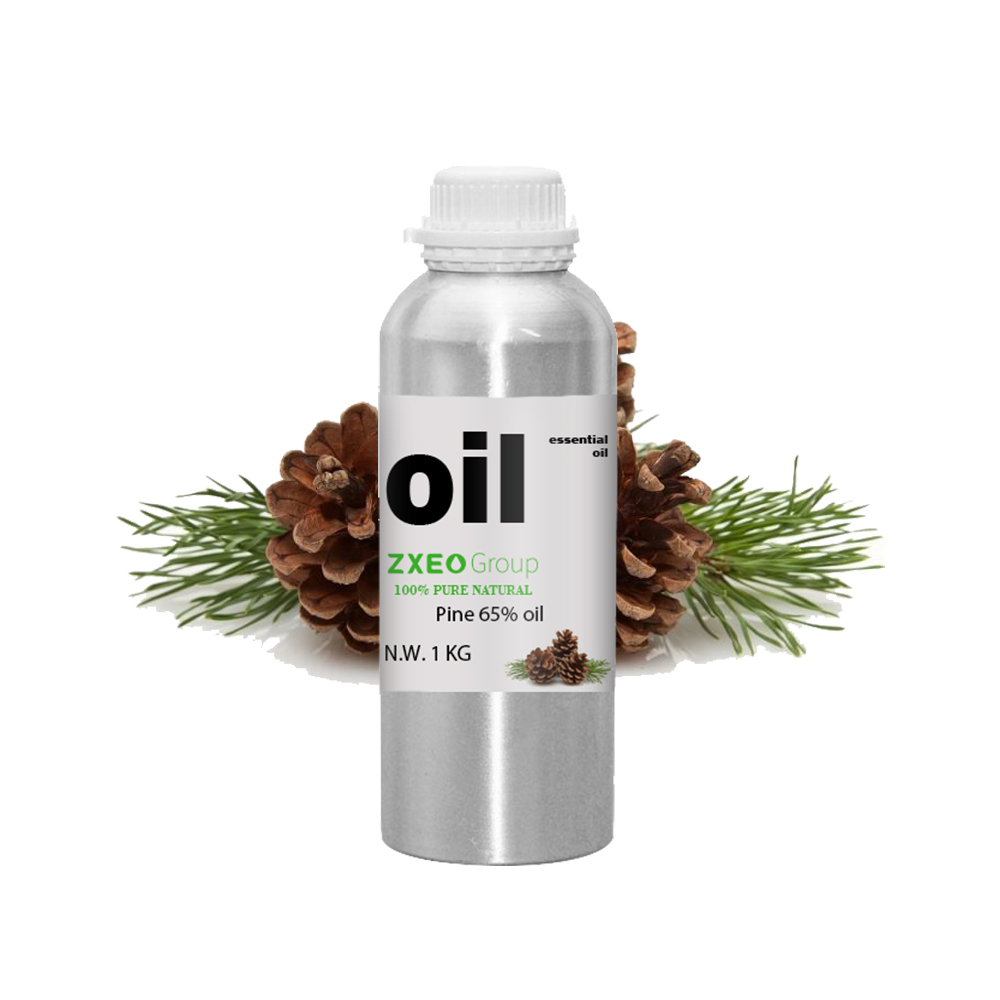
Top quality hot selling pure natural wholesale bulk pine oil 65% pine essential oil 65% cosmetic grade
Products & Informations
Pine Oil is the by-product of producing terpineol from gum turpentine obtained by steam distillation of the species Pinus. It contains alpha-Terpineol plus other cyclic terpene alcohols and terpene hydrocarbons.
Pine oil has a strong piny odor and is miscible with alcohol. It has a strong sterilizing effect and superior ability of deodorization, wetness, clearance and penetration. It is mainly applied in the production of household chemicals, such as detergent, industrial cleaner, high quality ink and paint solvent, etc. It is also used in pharmaceutical industry and cosmetic industry.
APPLICATIONS & USES
1. used as household or industrial detergent
2. used as inks, coating solvents
3. used as ore flotation agent
4. used as henolic disinfectant that has a significant disinfecting effect on bacterial strains and enveloped viruses
5. used as a pharmaceutical ingredient that has a certain effect on pathogens such as cold, gastroenteritis, cholera, meningitis, whooping cough, gonorrhea, etcBenefits
1. Mainly applied in the production of household detergent, industrial cleaner, high-quality ink and paint solvent owing to its pleasant pine smell, notable antimicrobial power and excellent solvency, low concentration ones can be used as a foaming agent in ore floatation
2. As a phenolic disinfectant. It is generally effective against numerous bacterial strains and enveloped viruses. Pine oil is not generally effective against non-enveloped viruses or spores
3. As a pharmaceutical ingredient, it kills the causative agents of typhoid, gastroenteritis, rabies, enteric fever, cholera, several forms of meningitis, whooping cough, gonorrhea and several types of dysentery. Pine oil is also effective against several of the leading causes of food poisoning -
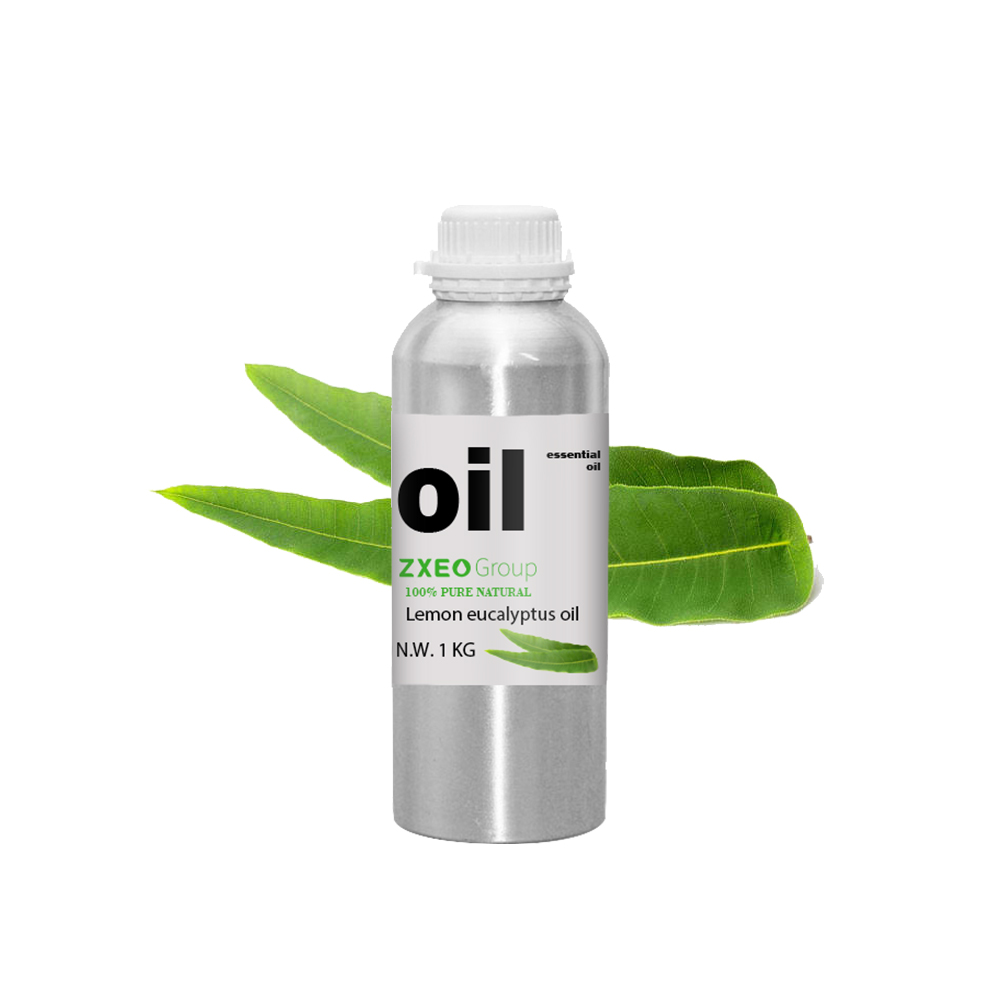
Top Quality Certified Factory Supply Eucalyptus Citriodara Oil Lemon Eucalyptus Essential Oil Mosquito Repellent
Lemon Eucalyptus Essential Oil
Despite it’s common name, Lemon Eucalyptus Essential Oil does not possess the distinctive cineole (camphor-like) aroma that Eucalyptus globulus and Eucalyptus radiata are known for because it contains very little cineole. Instead, it possesses a lovely, sweet lemon aroma.
Lemon Eucalyptus Essential Oil contains approximately 80% citronellal, an aldehyde that is strongly responsible for its aroma, antimicrobial properties and insect repellent capabilities.
Aromatically, Lemon Eucalyptus Essential Oil possesses a lovely lemon aroma that I find more beautifully sophisticated than that of Lemon Myrtle or Lemon Tea Tree essential oils. It blends especially well with essential oils in the citrus, medicinal, wood and floral families.
Emotionally, Lemon Eucalyptus Essential Oil is an energizing, uplifting essential oil that isn’t too overpowering or stimulating.
Lemon Eucalyptus Essential Oil Benefits and Uses
- Muscular Injury
- Fungal Skin Infection
- Bacterial Skin Infection
- Sores
- Wounds
- Respiratory Tract Conditions
- Asthma
- Fever
- Candida
- Insect Bites
- Insect Repellent
-

OEM Wholesale private label Natural Valerian Root Extract Deodorized Valerian Oil
Benefits of Valerian Oil
At Essentially Yours, we pride ourselves on doing the necessary research to deepen our understanding of aromatherapy and essential oils in general. This enables us to help you pick the best oils, blends, and methods of application for your wants and needs. We believe that familiarising you with our products, the numerous benefits they offer, and the adverse side effects that occur when they aren’t properly used is the least we can do, hence these blog posts. In this particular blog, we are going to dive into some of the many impressive benefits of Valerian Oil.
Promote sleep
Valerian Oil can induce peace and relaxation, thus facilitating restful and undisturbed sleep. This essential oil is commonly used as an alternative to prescribed sleeping pills because it’s both safe and gentle. It can be used in an aromatherapy diffuser or oil burner. Adding a few drops of 100% Pure Organic Valerian Oil to a warm bath can do the trick as well. If you find Valerian Oil’s aroma unpleasant, consider blending it with other calming essential oils like Lavender and Rosemary.
Calm anxiety and alleviate depression
Research has shown that Valerian Oil possesses powerful sedative properties. This oil can reduce feelings of anxiety and low self-confidence. Valerian Oil can also prevent the destruction of serotonin neurons in the brain, thus allowing for a prolonged feeling of relaxation. This means that Valerian Oil can be helpful in combating emotional stress, trauma, and depression.
Boost concentration
When diffused, Valerian Essential Oil can promote focus and mental clarity. It’s a great choice for students who are having a hard time concentrating. Additionally, Valerian Oil might also help treat ADHD (attention-deficit/hyperactivity disorder) – a chronic condition that affects millions of children and often continues into adulthood.
Lower blood pressure
It’s reported that Valerian Oil can regulate and lower blood pressure levels, which can lead to decreased chances of strokes and cardiac arrests. In addition to this, Valerian Oil might also reduce heart palpitations by facilitating a regular metabolic rate. To harness this health benefit, dilute a few drops of Valerian Oil with a carrier oil and gently massage the mixture onto your chest.
Relieve abdominal pain
Thanks to its analgesic and antispasmodic qualities, Valerian Oil can alleviate pain caused by menstrual cramps. Since it can soothe muscular spasms, Valerian Oil can be used to ease stomach issues as well. To take advantage of these therapeutic properties, add 3-4 drops of 100% Pure Organic Valerian Oil to your bath or dilute it with Coconut Oil to create an effective massage blend.
-

Rich Quality Direct Factory Supply Bulk Organic Fir Needle Essential Oil for Sale by SVA Organics
Amazing Benefits Of Fir Needle Essential Oil
The health benefits of fir needle essential oil include its ability to reduce pain, prevent infections, improve respiratory function, increase the metabolism, detoxify the body, and reduce body odor.
Fir Needle Essential Oil
Like so many popular essential oils, fir needle essential is extracted through a process of steam distillation from fir needles, primarily from the species Abies balsamea. The needles are the most important part of this plant, as that is where the active ingredients and powerful chemical compounds are located. Once the essential oil is extracted, it can be used for a wide variety of applications, notably in the form of topical ointments or additives to other carrier oils that have other health properties. The combination of tricyclene, a-pinene, borneol, limonene, acetate, and myrcene all combine for these impressive health effects. [1]
The largest producing companies of fir needle essential oil are France, Germany, and Bulgaria, perhaps due to their large forested areas and an accessible market for health-conscious Europeans who use essential oils regularly. The scent of fir needle essential oil is not overpowering and is considered more of a middle note essential oil. In terms of aromatherapy or topical application, fir needle essential oil blends well with lemon, pine, orange, and rosemary. If you feel like benefitting from the positive effects of this essential oil and enjoying the smell of fresh fir trees, then you should definitely keep reading!
Health Benefits of Fir Needle Essential Oil
The health benefits of fir needle essential oil are mentioned in detail below.
Prevents Infections
When it comes to preventing infection, essential oils have been turned to for thousands of years, and fir needle essential oil is no exception. Thanks to its high concentration of antiseptic organic compounds that stimulate the immune system and prevent dangerous infections, fir needle essential oil can be a powerful tool that keeps your body healthy inside and out. [2]
Relieves Pain
The soothing nature of fir needle essential oil makes it ideal for soothing pain and relaxing aching muscles. The stimulating nature of the oil can bring blood to the surface of the skin, flushing out toxins and increasing the rate of healing and recovery so your pain fades away and your body gets even stronger in the process. [3]
Detoxifies the Body
Some of the organic compounds and active oils within fir needle essential oil actually stimulate the body to flush itself clean. This tonic quality of this popular oil makes it great for people on health cleanses or who are simply looking to eliminate a few extra toxins from their system. It can induce sweating, which can push additional toxins from the body, but it also kicks the liver into a higher gear, cleansing numerous systems of the body. [4]
Improves Respiratory Function
Although some essential oils can be dangerous when inhaled, the aromatherapeutic qualities of fir needle essential oil are well known. This powerful essential oil is used in aromatherapy for the improvement of respiratory conditions. It can induce coughing to loosen and release mucous from your membranes, and can also act as an anti-inflammatory agent in the throat and bronchial tubes. Do not ingest the oil. [5]
Increases Metabolism
There are many factors that affect our metabolism, but fir needle essential oil can act as a general body stimulant, kicking our body into overdrive and increasing everything from our digestive rate to our heart rate. It gives us a boost of energy when we need it and can carry us into a more active lifestyle simply by cranking our internal engine up a few notches. [6]
Eliminates Body Odor
The naturally pleasant smell of fir needle essential oil makes it a wonderful candidate for people suffering from body odor. You know what the fresh smell of a beautiful pine forest smells like; isn’t that better than suffering from offensive body odor? Fir needle essential oil can actually decrease the amount of bacteria in your body that creates that foul odor and leave you smelling fresh as the forest! [7]
Word of Caution: Despite the versatility of this particular essential oil, it is important to never consume essential oils internally. Inhalation in the form of aromatherapy is safe in certain situations, but it is always better to speak with an herbalist or an aromatherapist before embarking on this sort of alternative treatment. Also, due to the high concentration of chemicals in these oils, undiluted oils can be very powerful and dangerous when your skin is directly exposed to it.
-

wholesale bulk custom label quintuple sweet orange essential oil
Description
· Orange essential oil having delightful fruity sweetness, and fragrance that can make it the perfect natural product for treating a number of ailments.
· Orange essential oil 5-fold is one of the finest natural products better known for its amazing characteristics to treat a wide range of health concerns.
· This natural product has antidepressant, antiseptic, antispasmodic, aphrodisiac, carminative, deodorant, stimulating, and digestive properties that make it perfect for different kinds of ailments.
· Orange essential oil is more suitable for various types of cosmetic applications due to its skincare properties. This Dark orange to golden brown color liquid is extracted from the process of steam distillation where the peel is used as a plant part.
· It works better for insomnia, stress, and colds. It brings positivity in life and helps you a lot in nurturing your skin.
Uses
· Orange essential oil 5-fold is used in aromatherapy, having antidepressant, antiseptic, antispasmodic, aphrodisiac, carminative, cordial and digestive properties.
· It can effectively combat with constipation, colds, dull skin, flatulence, flue and slow digestion.
· Orange essential oil 5-fold is the perfect one for the soap and candle making.
Cautions: Dilute before use; for external use only. May cause skin irritation in some individuals; a skin test is recommended prior to use. Contact with eyes should be avoided.
-
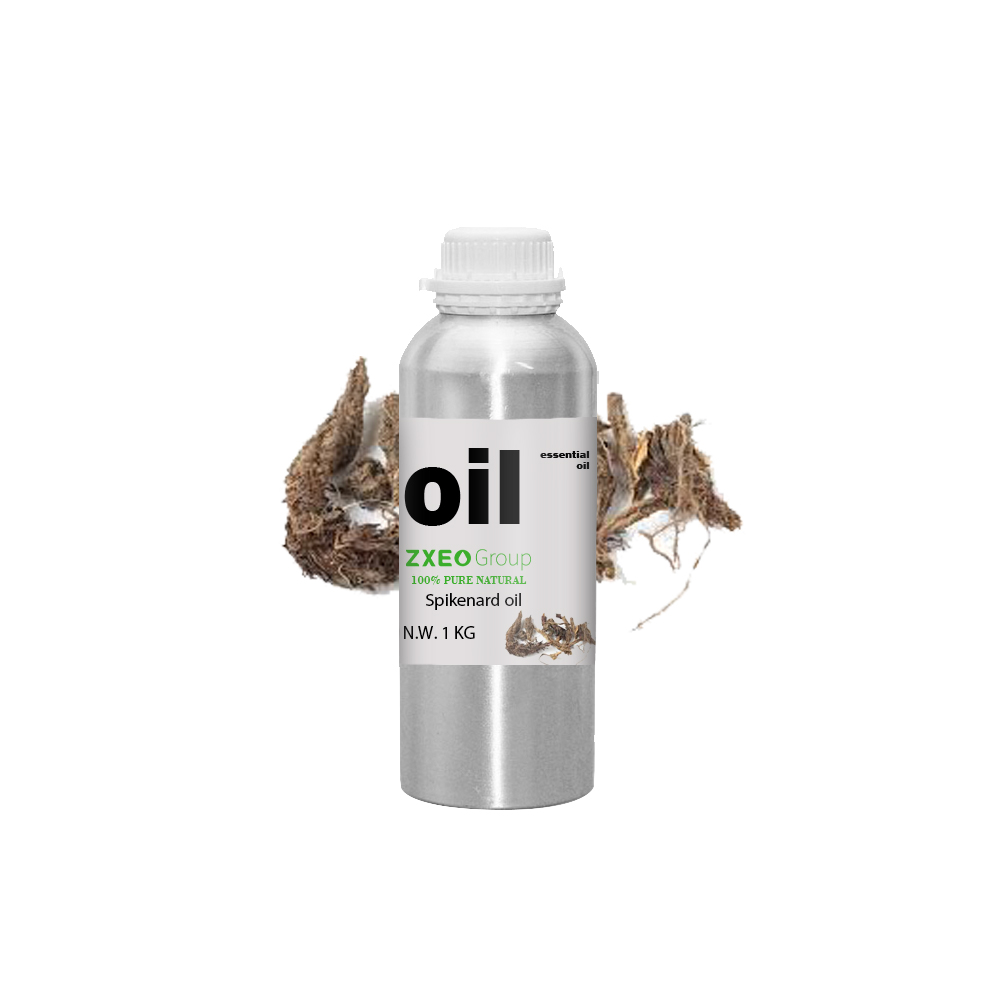
100% Pure Natural Essential Oils Organic Spikenard Oil Nardostachys Jatamansi Essential Oil 100% Pure Natural Essential Oils Wholesale Bulk Price
What Is Spikenard?
Spikenard, also called nard, nardin and muskroot, is a flowering plant of the Valerian family with the scientific name Nardostachys jatamansi. It grows in the Himalayas of Nepal, China and India, and is found at altitudes of about 10,000 feet.
The plant grows to be about three feet in height, and it has pink, bell-shaped flowers. Spikenard is distinguished by having many hairy spikes shooting out from one root, and it’s called “the Indian spike” by the Arabs.
The stems of the plant, called rhizomes, are crushed and distilled into an essential oil that has an intense aroma and amber color. It has a heavy, sweet, woody and spicy smell, which is said to resemble the smell of moss. The oil blends well with essential oils of frankincense, geranium, patchouli, lavender, vetiver and myrrh oils.
Spikenard essential oil is extracted by steam distillation of the resin obtained from this plant — its chief components include aristolene, calarene, clalarenol, coumarin, dihydroazulenes, jatamanshinic acid, nardol, nardostachone, valerianol, valeranal and valeranone.
According to research, the essential oil obtained from the roots of spikenard show fungi toxic activity, antimicrobial, antifungal, hypotensive, antiarrhythmic and anticonvulsant activity. The rhizomes extracted with 50 percent ethanol show hepatoprotective, hypolipidemic and antiarrhythmic activity.
The powdered stem of this beneficial plant is also taken internally to cleanse the uterus, help with infertility and treat menstrual disorders.
Benefits
1. Fights Bacteria and Fungus
Spikenard stops bacterial growth on the skin and inside the body. On the skin, it’s applied to wounds in order to help kill bacteria and help provide wound care. Inside the body, spikenard treats bacterial infections in the kidneys, urinary bladder and urethra. It’s also known to treat treat toenail fungus, athlete’s foot, tetanus, cholera and food poisoning.
A study done at the Western Regional Research Center in California evaluated the bactericidal activity levels of 96 essential oils. Spikenard was one of the oils that was most active against C. jejuni, a species of bacteria commonly found in animal feces. C. jejuni is one of the most common causes of human gastroenteritis in the world.
Spikenard is also antifungal, so it promotes skin health and helps heal ailments caused by fungal infections. This powerful plant is able to ease itching, treat patches on the skin and treat dermatitis.
2. Relieves Inflammation
Spikenard essential oil is extremely beneficial to your health because of its ability to fight inflammation throughout the body. Inflammation is at the root of most diseases and it’s dangerous for your nervous, digestive and respiratory systems.
A 2010 study done at the School of Oriental Medicine in South Korea investigated the effect of spikenard on acute pancreatitis — a sudden inflammation of the pancreas that can range from mild discomfort to a life-threatening illness. The results suggest spikenard treatment weakened the severity of acute pancreatitis and pancreatitis-associated lung injury; this proves that spikenard serves as an anti-inflammatory agent.
3. Relaxes the Mind and Body
Spikenard is a relaxing and soothing oil for the skin and mind; it’s used as a sedative and calming agent. It’s also a natural coolant, so it rids the mind of anger and aggression. It sedates feelings of depression and restlessness and can serve as a natural way to relieve stress.
A study done at the School of Pharmaceutical Science in Japan examined spikenard for its sedative activity using a spontaneous vapor administration system. The results indicated that spikenard contained a lot of calarene and its vapor inhalation had a sedative effect on mice.
The study also indicated that when essential oils were mixed together, the sedative response was more significant; this was especially true when spikenard was mixed with galangal, patchouli, borneol and sandalwood essential oils.
The same school also isolated two components of spikenard, valerena-4,7(11)-diene and beta-maaliene, and both compounds reduced the locomotor activity of mice.
Valerena-4,7(11)-diene had a particularly profound effect, with the strongest sedative activity; in fact, caffeine-treated mice that showed locomotor activity that was double that of controls were calmed to normal levels by the administration of valerena-4,7(11)-diene.
Researchers found that the mice slept 2.7 times longer, an effect similar to that of chlorpromazine, a prescription drug given to patients with mental or behavior disorders.
4. Stimulates the Immune System
Spikenard is an immune system booster — it calms the body and allows it to function properly. It’s a natural hypotensive, so it naturally lowers blood pressure.
Elevated blood pressure is when the pressure on the arteries and blood vessels becomes too high and the arterial wall becomes distorted, causing extra stress on the heart. Long term-high blood pressure increases the risk of stroke, heart attack and diabetes.
Using spikenard is a natural remedy for high blood pressure because it dilates the arteries, acts as an antioxidant to reduce oxidative stress and decreases emotional stress. Oils from the plant also relieve inflammation, which is the culprit for a host of diseases and illnesses.
A 2012 study conducted in India found that spikenard rhizomes (the stems of the plant) exhibited high reduction capability and powerful free radical scavenging. Free radicals are very dangerous to the body’s tissues and have been connected to cancer and premature aging; the body uses antioxidants to prevent itself from the damage caused by oxygen.
Like all high antioxidant foods and plants, they protect our bodies from inflammation and fight free radical damage, keeping our systems and organs running properly.
-
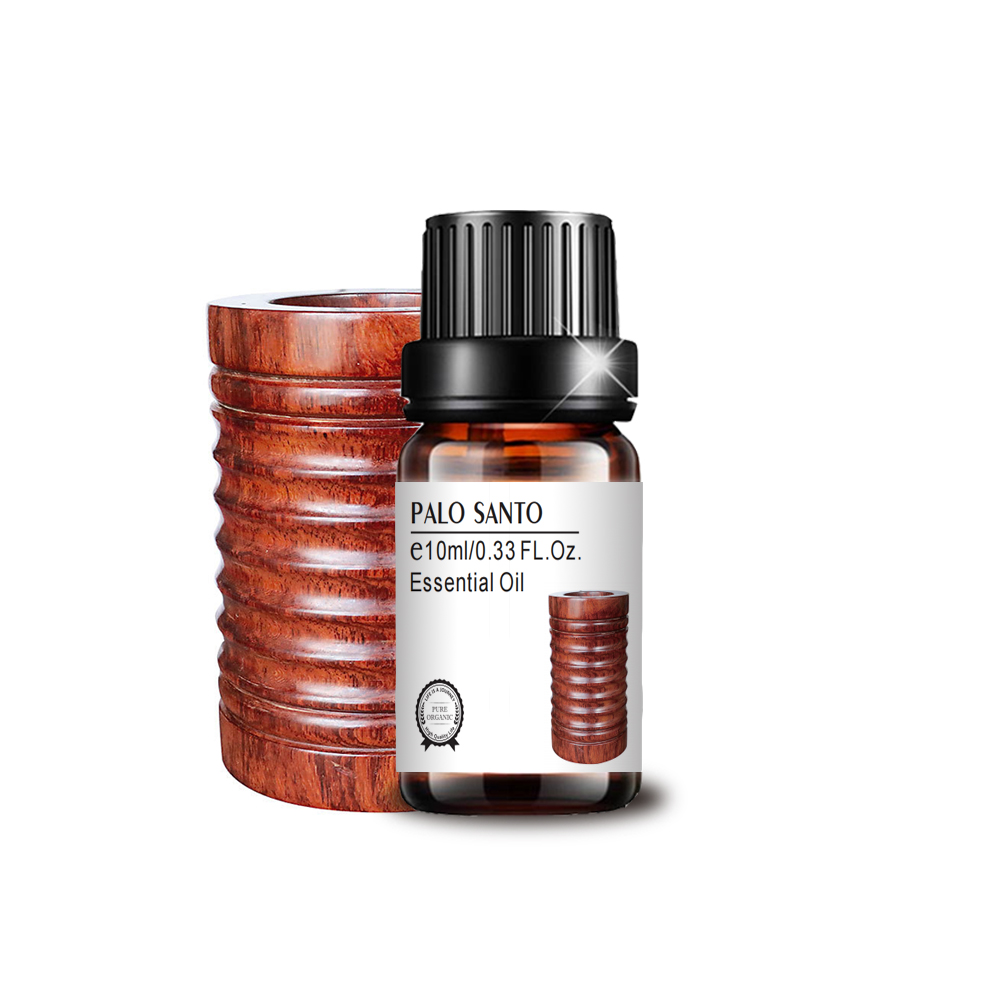
10ml pure therapeutic grade wholesale bulk palo santo essential oil
Palo Santo Uses and Benefits
Whether in incense or essential oil form, research suggests that palo santo benefits include:
1. Concentrated Source of Antioxidants
As a rich supply of antioxidants and phytochemicals called terpenes, palo santo oil is effective for combatting free radical damage (also called oxidative stress), relieving stomach aches, fighting stress, reducing pains due to arthritis and healing many other conditions.
Particularly, it’s been gaining attention for being a natural cancer treatment for inflammatory diseases.
An analysis of steam-distilled palo santo essential oil showed that the major active constituents include: limonene (89.33 percent), α-terpineol (11 percent), menthofuran (6.6 percent) and carvone (2 percent). Other beneficial compounds in smaller quantities include germacrene D, muurolene and pulegone.
2. Detoxifier and Immune Enhancer
Palo santo helps support the immune system and regulates inflammatory responses, such as those triggered by a poor diet, pollution, stress and illness.
Limonene, the main active ingredient in palo santo, is a bioactive component found in high concentrations in certain plants, including citrus peels, that has well-researched anticancer and anti-inflammatory effects. In preclinical studies of mammary carcinogenesis and inflammation-related diseases, supplementing with limonene helps to fight inflammation, lower cytokines and protects the epithelial barrier of cells.
In 2004, researchers from the University of Shizuoka School of Pharmaceutical Sciences in Japan discovered several other key phytochemicals in palo santo oil that are capable of fighting cancerous cell mutation. These compounds showed remarkable inhibitory activity against human cancer and fibrosarcoma cells.
Researchers observed biological activities including antineoplastic, antitumor, antiviral and anti-inflammatory actions against cell mutations and tumor growth. Triterpene lupeol compounds found in palo santo especially showed strong activity against lung, breast and colon cancer cells.
3. De-Stressor and Relaxant
Considered an oil that’s grounding and centering, both palo santo and frankincense oils are used for emotional and spiritual support since they work like natural anxiety remedies.
Once inhaled, palo santo travels directly through the olfactory system (which controls our sense of smell) of the brain, where it helps turn on the body’s relaxation responses and reduces panic, anxiety and insomnia.
To try smudging with palo santo, which is intended to improve the energy in your environment, you can burn a small amount of the wood in your home.
Another option is apply several drops mixed with a carrier oil (such as coconut or jojoba oil) to your head, neck, chest or spine to help you unwind and fall asleep more easily. You can also combine palo santo with lavender oil, bergamot oil or frankincense oil for additional relaxation benefits.
4. Headache Treatment
Known to combat migraines and even stress-related headaches or bad moods, palo santo helps to lower inflammation and increase blood flow that can help turn off perceived pain.
For a natural headache remedy and instant relief, dilute a few drops in water and dissolve the vapors with a diffuser whenever a headache strikes. Or try rubbing some palo santo mixed with coconut oil onto your temples and neck.
5. Cold or Flu Treatment
Palo santo is known to fight infections and viruses that can leave you with a cold or the flu. By improving blood circulation and recharging your energy levels, it can help you feel better faster and stop severity of feelings of dizziness, congestion and nausea.
Apply a few drops on the chest at heart level or add some to your shower or bath to beat a cold or flu.
-
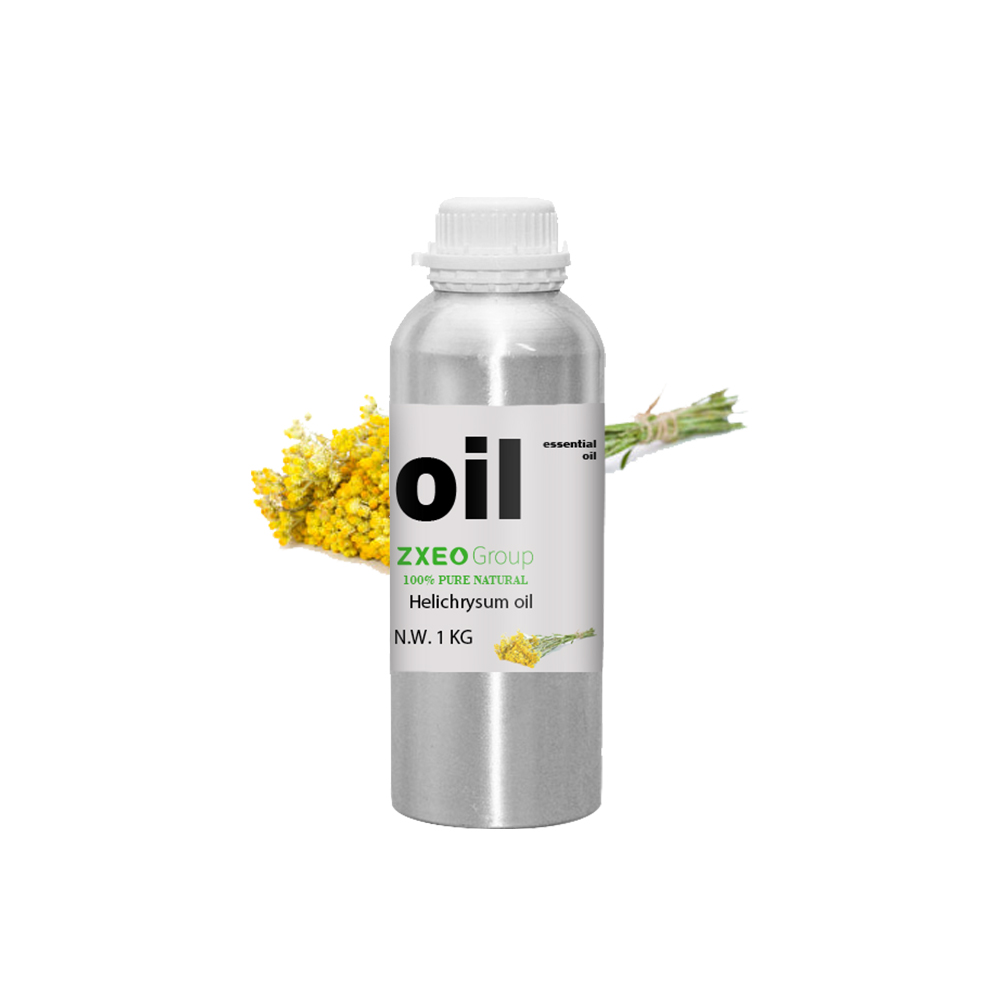
Manufacturer Supply Private Label Organic Helichrysum Essential Oil at Wholesale Bulk Prices
What Is Helichrysum Essential Oil?
Helichrysum is a member of the Asteraceae plant family and is native to the Mediterranean region, where it’s been used for its medicinal properties for thousands of years, especially in countries like Italy, Spain, Turkey, Portugal, and Bosnia and Herzegovina. (3)
In order to validate some of the traditional uses of Helichrysum italicum extract and to highlight its other potential applications, numerous several scientific studies have been conducted in the last several decades. The focus of many studies has been to identify just how helichrysum oil acts as a natural antimicrobial and anti-inflammatory agent.
Modern science now confirms what traditional populations have known for centuries: Helichrysum essential oil contains special properties that make it an antioxidant, an antibacterial, an antifungal and an anti-inflammatory. As such, it can be used in dozens of different ways to boost health and ward off disease. Some of its most popular uses are for treating wounds, infections, digestive problems, supporting the nervous system and heart health, and healing respiratory conditions.
Traditional Helichrysum Essential Oil Benefits
Helichrysum oil comes the Helichrysum italicum plant, which is considered a medicinal plant with many promising pharmacological activities because it operates as a natural antibiotic, antifungal and antimicrobial. The helichrysum italicum plant is also commonly referred to by other names, such as curry plant, immortelle or Italian strawflower.
In traditional Mediterranean medicine practices that have been using helichrysum oil for centuries, its flowers and leaves are the most useful parts of the plant. They are prepared in different ways to treat conditions, including: (4)
- Allergies
- Acne
- Colds
- Cough
- Skin inflammation
- Wound healing
- Constipation
- Indigestion and acid reflux
- Liver diseases
- Gallbladder disorders
- Inflammation of the muscles and joints
- Infections
- Candida
- Insomnia
- Stomachaches
- BloatingSome websites also recommend helichrysum oil for tinnitus, but this use is not currently backed up by any scientific studies nor does it appear to be a traditional use. While most of its traditionally claimed applications are not yet scientifically proven, research continues to develop and shows promise that this oil will be useful for healing many different conditions without the need for medications that can cause unwanted side effects.In recent years, researchers have actively been studying the different pharmacological activities of Helichrysum italicum extract to discover more about the science behind its traditional uses, toxicity, drug interactions and safety. As more information is uncovered, pharmacological experts predict that helichyrsum will become an important tool in the treatment of several diseases.
How exactly does helicrysum do so much for the human body? According to studies done so far, scientists believe that part of the reason is the strong antioxidant properties — especially in the form of acetophenones and phloroglucinols — present within helichrysum oil.
In particular, helichrysum plants of the Asteraceae family are prolific producers of a host of different metabolites, including pyrones, triterpenoids and sesquiterpenes, in addition to its flavonoids, acetophenones and phloroglucinol.
Helichyrsum’s protective properties are expressed partly like a corticoid-like steroid, helping lower inflammation by inhibiting action in different pathways of arachidonic acid metabolism. Researchers from the Department of Pharmacy at the University of Naples in Italy also found that due to ethanolic compounds present in the extract of helichrysum flowers, it elicits antispasmodic actions inside of an inflamed digestive system, helping reduce the gut from swelling, cramping and digestive pain. (5)

